![captain america civil war box office]()
Ho-hum, another first weekend of the
summer movie season, another blowout by a
Marvel Cinematic Universe movie featuring an all-star cast of superheroes.
"
Captain America: Civil War" premiered with an estimated $181.8 million, boasting the fifth-largest North American opening weekend ever, the third-largest May opening ever, and the third-largest MCU debut.
If such debuts are becoming routine, you can credit the filmmakers for their execution,
Marvel Studios President
Kevin Feige for the grand MCU blueprint, and the well-oiled
Disney machine for its marketing and distribution efforts. Indeed, they all have these mega-launches down to a science, thanks to the lessons they've learned from past releases. Among those lessons, according to Disney Executive Vice President of Distribution Dave Hollis:
1. Quality Control![captain america civil war russo brothers]()
Or, as Hollis put it on Sunday, "You've gotta make a really great movie." The MCU movies have been fairly consistent in quality, a status Hollis credits largely to Feige, though Feige's willingness to hire inventive filmmakers (such as
Joss Whedon for the "
Avengers" movies or the
Russo brothers for the two most recent "
Captain America" films) ought to be acknowledged as well. The important elements, Hollis said, are "a great story, fantastic characters, and extraordinary worlds, all of which must be satisfying to fans and critics." "Civil War" certainly seems to qualify, given the movie's A grade at CinemaScore (indicating very strong fan word-of-mouth) and its appeal among reviewers, as shown by a 91 percent fresh score at Rotten Tomatoes and a 75 percent score at Metacritic.
2. New Characters![captain america civil war black panther]()
Certainly, Marvel fans come to these films to see familiar faces, but they're also excited about new ones. Said Hollis, "Yes, you have to have movies that feature familiar characters, but you also have to keep this universe fresh by introducing new characters." He was particularly pleased with the eagerly-anticipated introduction in "Civil War" of
Black Panther (played by
Chadwick Boseman), who'll now have a much bigger fan base by the time he gets his own stand-alone movie in 2018. (Hollis did not cite the introduction in "Civil War" of
Tom Holland as
Spider-Man, perhaps because the forthcoming Spidey franchise reboot starring Holland will be made at Sony, outside of Disney and the MCU.) He also plugged
Benedict Cumberbatch's
Doctor Strange, who gets his own movie this November and will presumably loom large in future MCU movies after that.
A corollary, which Hollis didn't mention, is that "Civil War" may offer one of the last opportunities to see
Robert Downey Jr. play Iron Man. Though we can still expect to see Tony Stark suit up in the upcoming Avengers "
Infinity War" saga, Downey has said he doesn't expect to headline another stand-alone "
Iron Man" chapter. Indeed, he told
USA Today, the new "Captain America" is, as far as the actor is concerned, also his own "Iron Man 4." To the extent that fans know Downey is nearly done playing Tony Stark, that could also have driven up sales for "Civil War."
3. New Genres![captain america civil war sharon carter]()
Hollis said he was aware that critics -- and many fans -- may be getting tired of a multiplex blockbuster environment defined almost entirely by spandex-clad comic-book heroes and villains. "We're inoculated against superhero fatigue," he said, "by making movies that individually have a genre that's outside the superhero movie." For instance, he noted, the last "Captain America" installment ("The Winter Solder") was more of "an espionage film." "
Guardians of the Galaxy" was more of "a space opera" than other Marvel movies have been. "And '
Ant-Man' was a heist film." He did not specify a genre for "Civil War," though after DC's "
Batman v Superman: Dawn of Justice" and "Civil War," it seems like super-domestic-squabble drama is becoming a genre of its own.
One thing that did make the "Civil War" launch different from previous Marvel debuts is that the film hit the multiplex at a time when Disney already had an appeals-to-all-demographics smash still playing on more than 4,000 screens. In fact, "
The Jungle Book," now in its fourth week, took second place on the weekend chart and earned another estimated $21.9 million -- roughly equal to the difference between the most optimistic analysts' projections for where "Civil War" might open (that is, around $200 million) and how much it actually earned. At the very least, with "Jungle Book" in 4,144 venues and "Captain America" in 4,226, competition must have been fierce for the relative handful of available 3D,
IMAX, and premium large format screens, whose ticket surcharges can account for a sizable percentage of a movie's weekly take.
Hollis insisted that the two Disney all-ages hits didn't cannibalize each other. "It's hard to be anything but ecstatic" about a movie that opens with $181.8 million, he said, noting that MCU movies now occupy four of the top six slots among the biggest domestic opening weekends in Hollywood history. "There's always going to be competition in the marketplace. It's good for the overall ecosystem of the movie business. Both films will coexist for the next few weekends."
In other words, the more the merrier, and success breeds success. In fact, Hollis said, the
box office numbers alone for "Civil War" should inspire both potential moviegoers and repeat viewers over the next few weeks as much as the movie's actual content and word-of-mouth. "The exciting thing is thinking about what is left to go," he said. "$181 million worth of U.S. box office evangelism is about to hit the streets."
![]()
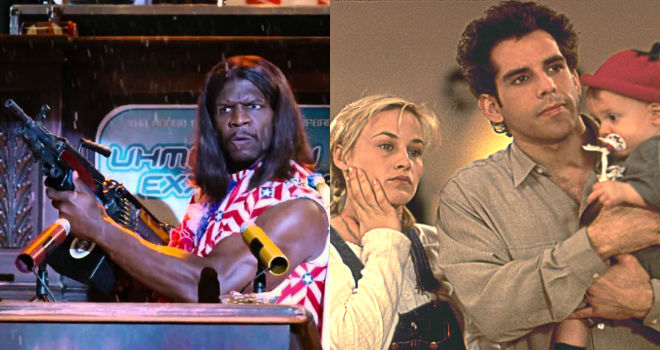
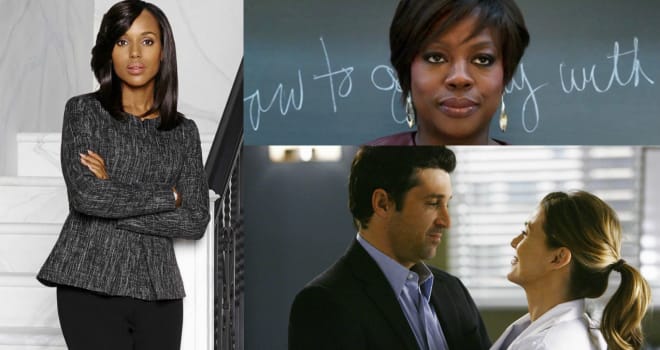
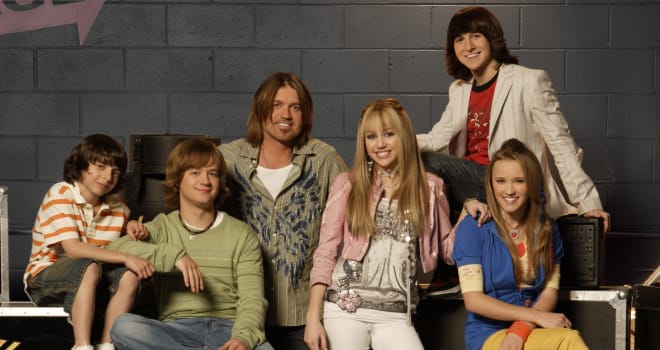
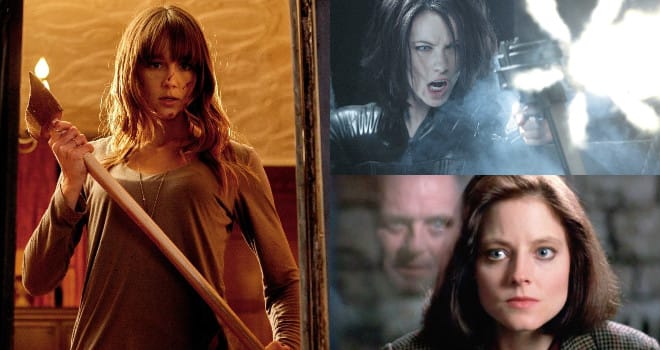
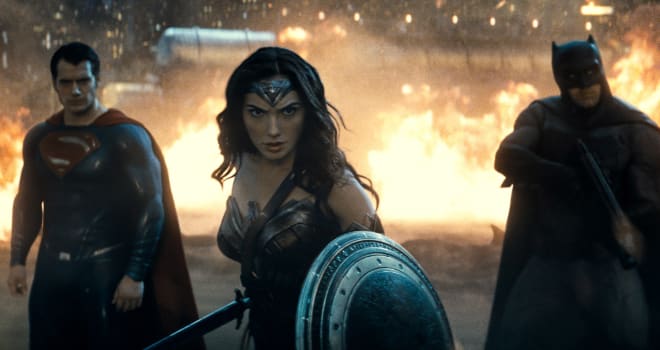 Have you seen some of the
Have you seen some of the 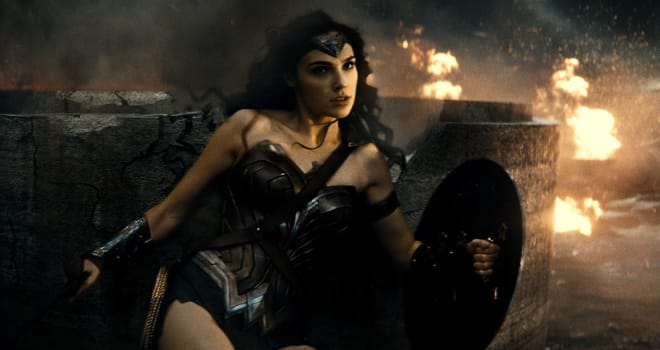 She may not have a huge part in the film, but DC fans have been waiting 75 years to see her on the big screen. According to a
She may not have a huge part in the film, but DC fans have been waiting 75 years to see her on the big screen. According to a 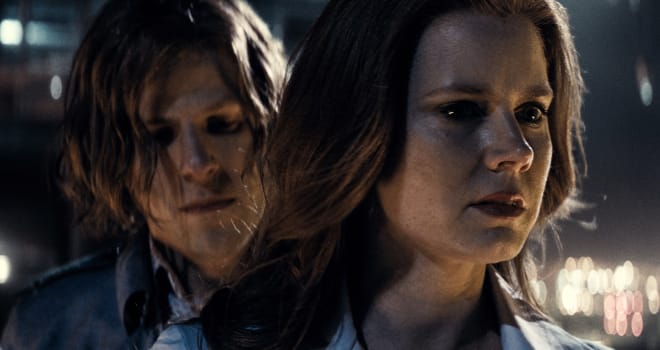 According to the same survey, 60 percent of those polled were fans of
According to the same survey, 60 percent of those polled were fans of 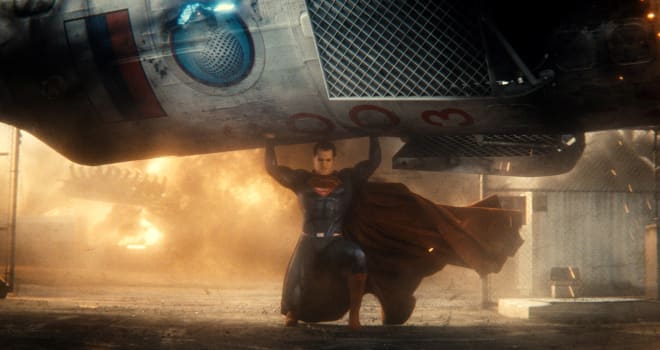 Love him or hate him (and there are many in both camps), Snyder deserves credit as a creator of eye-popping visuals that really do look like frames from a comic book brought to life. His movies are among the few that do benefit from being seen in enhanced format. It's no wonder that a full 40 percent of this weekend's "BvS" grosses came from 3D screenings, and a healthy 10.6 percent came from IMAX showings. Those ticket surcharges helped the supercharged opening.
Love him or hate him (and there are many in both camps), Snyder deserves credit as a creator of eye-popping visuals that really do look like frames from a comic book brought to life. His movies are among the few that do benefit from being seen in enhanced format. It's no wonder that a full 40 percent of this weekend's "BvS" grosses came from 3D screenings, and a healthy 10.6 percent came from IMAX showings. Those ticket surcharges helped the supercharged opening.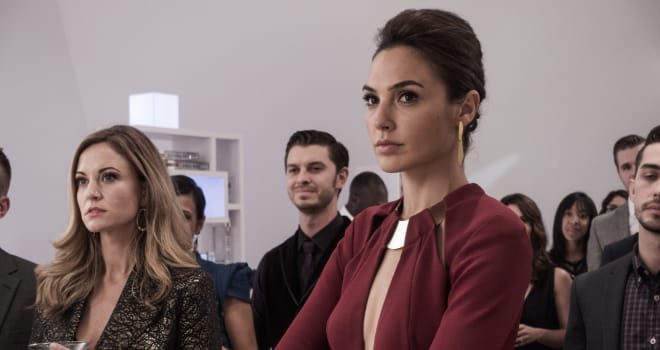 It's late March, so there's really nothing out there, not even "Deadpool" or "Zootopia," that offered a real obstacle to the "BvS" steamroller. The only other wide-release movie this week was the romantic comedy "My Big Fat Greek Wedding 2," which actually did better than expected with it estimated $18.1 million premiere. Of course, it's audience was 76 percent female, while "BvS" viewers were mostly guys (62 percent). So it's not like Warner Bros. had to worry about Universal's rom-com stealing much of its action audience.
It's late March, so there's really nothing out there, not even "Deadpool" or "Zootopia," that offered a real obstacle to the "BvS" steamroller. The only other wide-release movie this week was the romantic comedy "My Big Fat Greek Wedding 2," which actually did better than expected with it estimated $18.1 million premiere. Of course, it's audience was 76 percent female, while "BvS" viewers were mostly guys (62 percent). So it's not like Warner Bros. had to worry about Universal's rom-com stealing much of its action audience.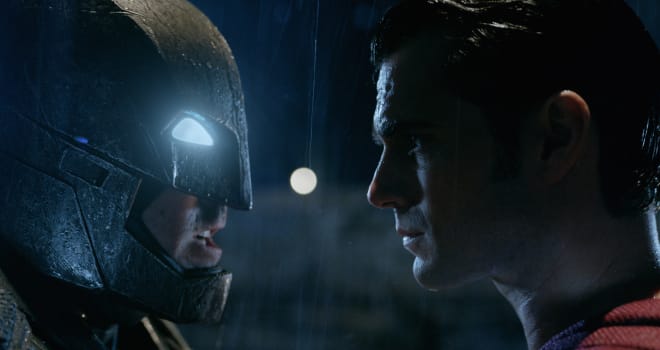 As Marvel fans know, it's sometimes hard to follow all the action in the Marvel Cinematic Universe movies if you haven't been paying attention since the beginning. DC fans know that, if they want to keep up with the DC movies that will spring from this one -- there are at least 10 of them on the drawing board set for release over the next five years, including this summer's "
As Marvel fans know, it's sometimes hard to follow all the action in the Marvel Cinematic Universe movies if you haven't been paying attention since the beginning. DC fans know that, if they want to keep up with the DC movies that will spring from this one -- there are at least 10 of them on the drawing board set for release over the next five years, including this summer's "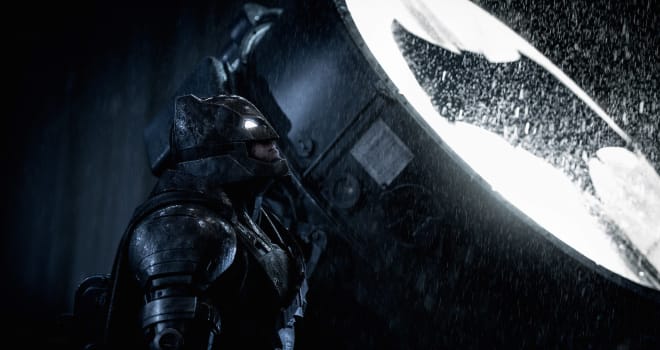 But even if you're not interested in coming up with your own fan theories or spotting references that may not pay off until, say, the release of the "Cyborg" movie in 2020, you still wanted to see "Batman v Superman" just out of Fear of Missing Out. Thanks to months (years?) of hype, it's become part of the national conversation. (International, even, since the film has grossed an estimated $254 million abroad.) The terrible reviews have only added to that conversation. It can't really be as bad as they say, can it? You went out of curiosity, or because you assumed the critics were just being pointy-headed elitists, or because, even if you thought they might be right, you still had to share the experience. (In fact, the film earned a blah B at CinemaScore, suggesting that word-of-mouth among viewers isn't much more enthusiastic than the reviews.) It's a conversation that's not going to die down any time soon, especially because of the film's controversial ending that's sure to divide even die-hard DC Comics readers who might have seen it coming.
But even if you're not interested in coming up with your own fan theories or spotting references that may not pay off until, say, the release of the "Cyborg" movie in 2020, you still wanted to see "Batman v Superman" just out of Fear of Missing Out. Thanks to months (years?) of hype, it's become part of the national conversation. (International, even, since the film has grossed an estimated $254 million abroad.) The terrible reviews have only added to that conversation. It can't really be as bad as they say, can it? You went out of curiosity, or because you assumed the critics were just being pointy-headed elitists, or because, even if you thought they might be right, you still had to share the experience. (In fact, the film earned a blah B at CinemaScore, suggesting that word-of-mouth among viewers isn't much more enthusiastic than the reviews.) It's a conversation that's not going to die down any time soon, especially because of the film's controversial ending that's sure to divide even die-hard DC Comics readers who might have seen it coming.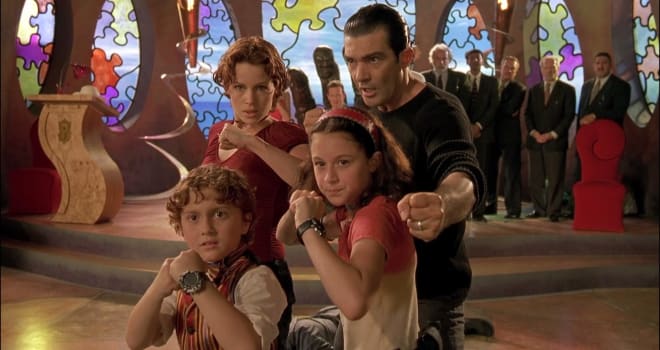
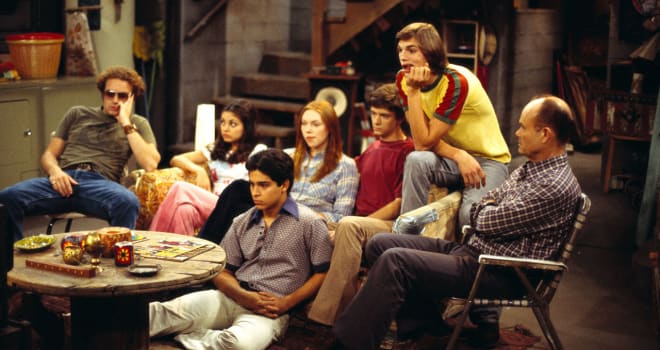
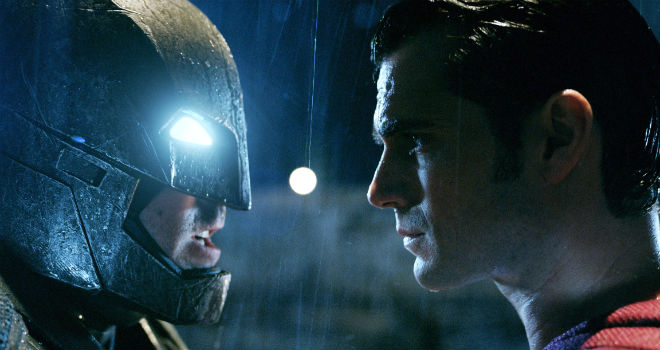 Spare a moment's pity for Batman and Superman.
Spare a moment's pity for Batman and Superman. Did the criticism matter after all?
Did the criticism matter after all? Does the second-week drop mean the movie's a flop?
Does the second-week drop mean the movie's a flop? Could there be another factor behind this weekend's precipitous plunge?
Could there be another factor behind this weekend's precipitous plunge?  So, what are the takeaways?
So, what are the takeaways?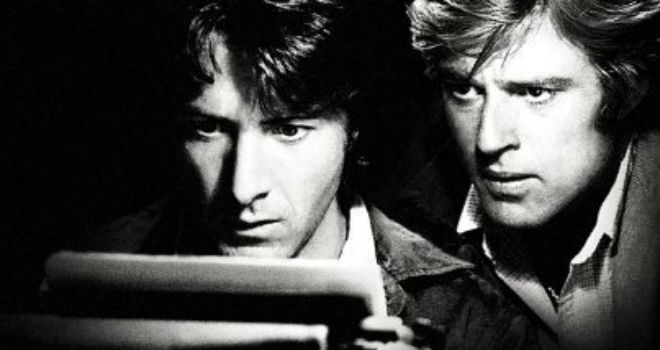 When "
When "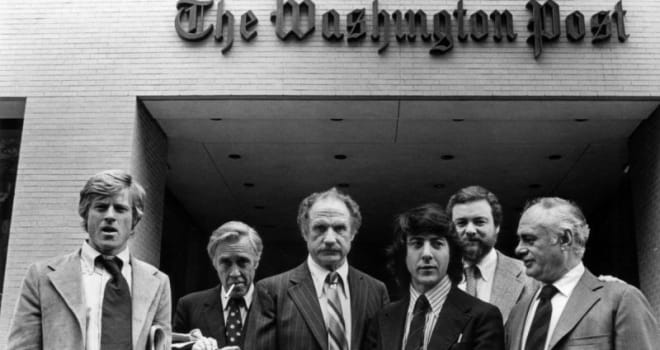 1. Washington Post reporters Bob Woodward and Carl Bernstein were still busy investigating Watergate when Robert Redford first called them to ask about buying the movie rights to their story. The suspicious scribes dismissed the actor's call because they assumed they were being pranked by a staffer on Richard Nixon's Committee to Re-Elect the President (CREEP).
1. Washington Post reporters Bob Woodward and Carl Bernstein were still busy investigating Watergate when Robert Redford first called them to ask about buying the movie rights to their story. The suspicious scribes dismissed the actor's call because they assumed they were being pranked by a staffer on Richard Nixon's Committee to Re-Elect the President (CREEP).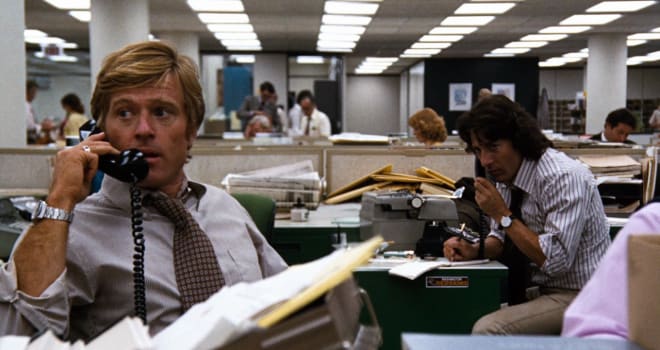 3. Indeed, the producers went to extreme lengths to make the movie feel authentic. The Post wouldn't allow the production to film in its newsroom, which would have been disruptive, so the filmmakers spent $450,000 recreating the newsroom in a Hollywood soundstage. Art directors visited the real newsroom and took photos, measurements, and even a brick from the lobby. They replicated out-of-date DC phone books and bought desks from the same supplier the Post used. They even got Post reporters to send them boxes of their own trash, to make the fake newsroom look realistically messy.
3. Indeed, the producers went to extreme lengths to make the movie feel authentic. The Post wouldn't allow the production to film in its newsroom, which would have been disruptive, so the filmmakers spent $450,000 recreating the newsroom in a Hollywood soundstage. Art directors visited the real newsroom and took photos, measurements, and even a brick from the lobby. They replicated out-of-date DC phone books and bought desks from the same supplier the Post used. They even got Post reporters to send them boxes of their own trash, to make the fake newsroom look realistically messy.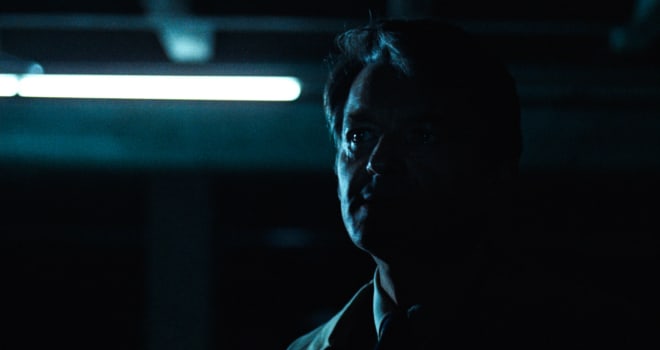 5. The identity of Deep Throat, the key informant named after the then-popular porn movie, remained a secret known only to Woodward, Bernstein, and Post editor Ben Bradlee. (They kept the secret for 33 years, until former FBI deputy director W. Mark Felt outed himself in 2005.) Woodward did help the filmmakers cast
5. The identity of Deep Throat, the key informant named after the then-popular porn movie, remained a secret known only to Woodward, Bernstein, and Post editor Ben Bradlee. (They kept the secret for 33 years, until former FBI deputy director W. Mark Felt outed himself in 2005.) Woodward did help the filmmakers cast 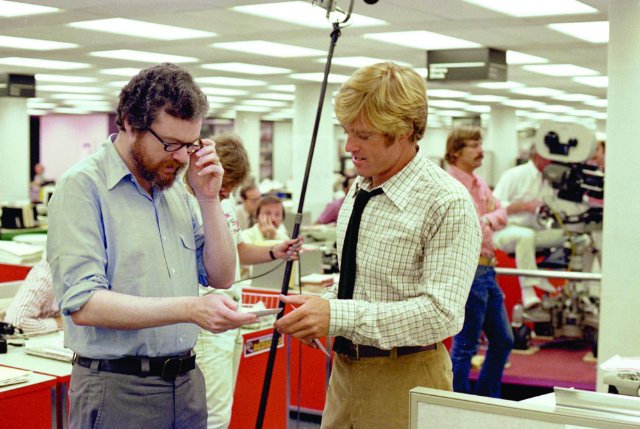 7. The movie is so spare and documentary-like that David Shire's musical score doesn't kick in until about 28 minutes into the film.
7. The movie is so spare and documentary-like that David Shire's musical score doesn't kick in until about 28 minutes into the film.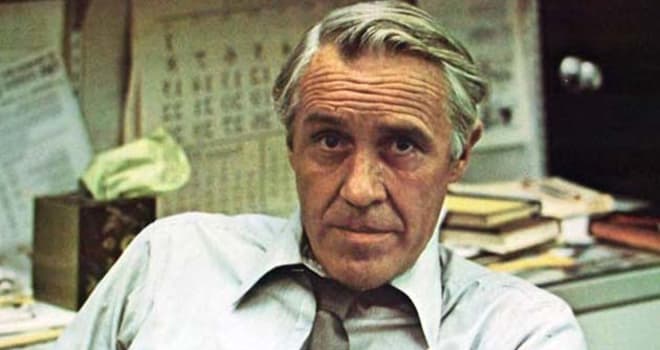 9. The movie was nominated for eight Oscars, including Best Picture (which it lost to "
9. The movie was nominated for eight Oscars, including Best Picture (which it lost to "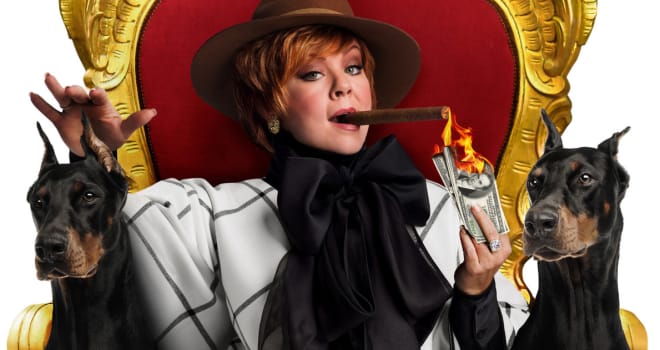 Forget Wonder Woman or "
Forget Wonder Woman or "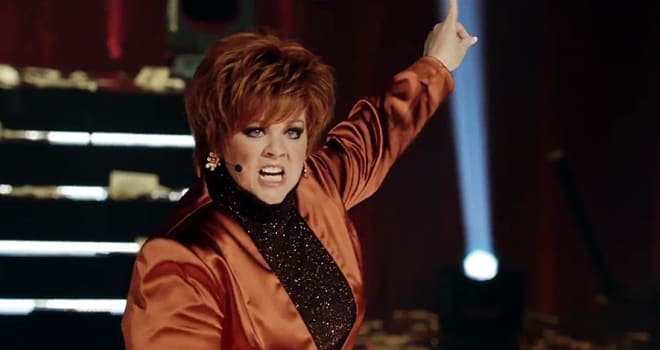 Most of McCarthy's hits, including "
Most of McCarthy's hits, including "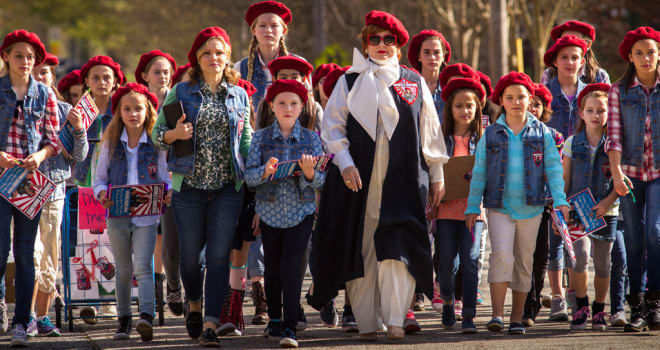 There's already a comedy out there that appeals to older women. In fact, "Boss" studio Universal released it just two weeks ago -- "
There's already a comedy out there that appeals to older women. In fact, "Boss" studio Universal released it just two weeks ago -- "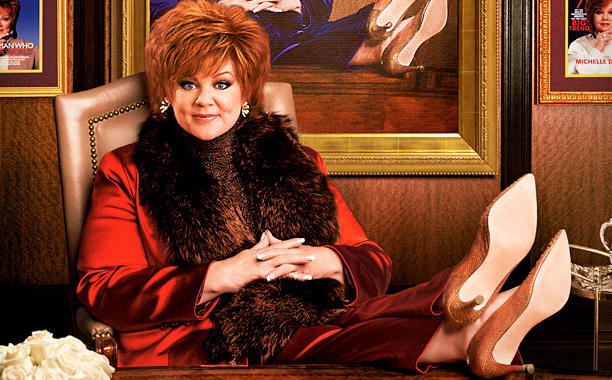 New entries this weekend proved to be non-starts. With its first-person-shooter-POV gimmick and its clever online marketing campaign aimed at gamers, "Hardcore Henry" had been expected to open between $8 and $12 million, but mixed reviews and weak word-of-mouth (it also earned a C+ at CinemaScore) led to a fifth place debut with just an estimated $5.1 million.
New entries this weekend proved to be non-starts. With its first-person-shooter-POV gimmick and its clever online marketing campaign aimed at gamers, "Hardcore Henry" had been expected to open between $8 and $12 million, but mixed reviews and weak word-of-mouth (it also earned a C+ at CinemaScore) led to a fifth place debut with just an estimated $5.1 million.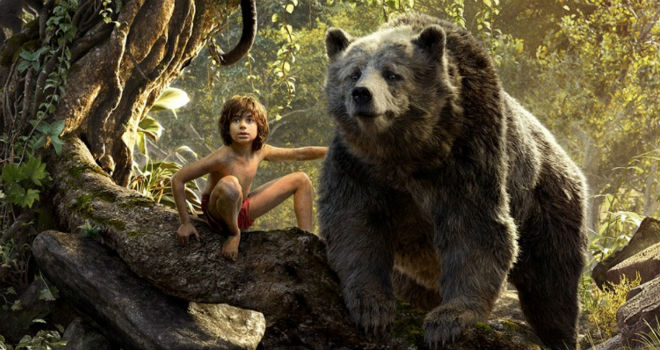 Disney's latest live-action update of one of its classic animated features is "
Disney's latest live-action update of one of its classic animated features is "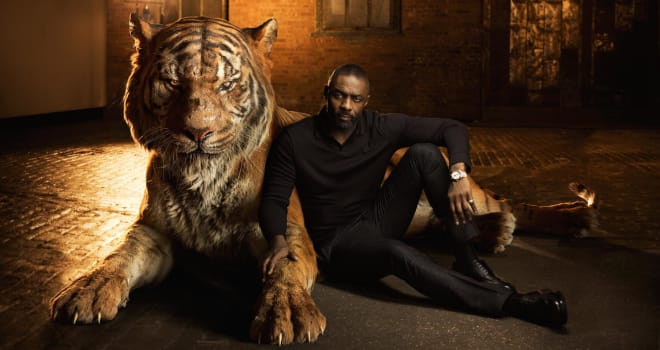 The
The 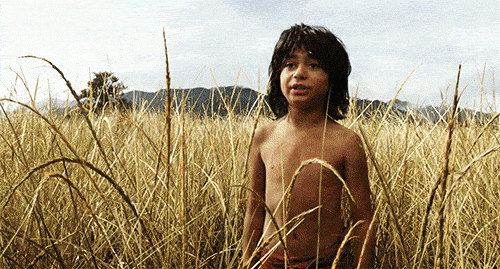 The generally-lighthearted 1967 cartoon wasn't especially faithful to the source material. Favreau has said his film delves deeper into the Kipling stories, which means the animals are more savage and the danger to Mowgli is greater. Elba's tiger Shere Khan is reportedly one of the scariest screen villains since -- well, Elba's warlord in "
The generally-lighthearted 1967 cartoon wasn't especially faithful to the source material. Favreau has said his film delves deeper into the Kipling stories, which means the animals are more savage and the danger to Mowgli is greater. Elba's tiger Shere Khan is reportedly one of the scariest screen villains since -- well, Elba's warlord in "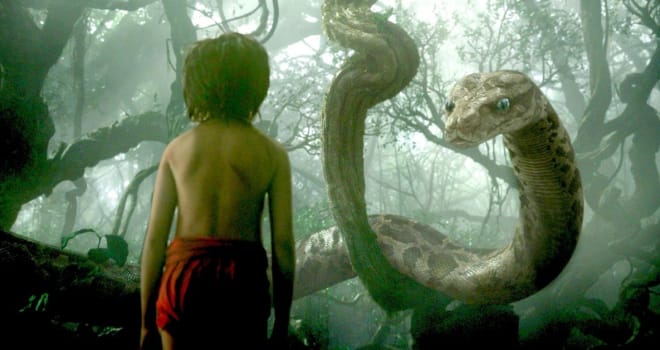 Favreau decided that the cartoon, populated almost exclusively by male characters, needed more feminine presences. So Kaa the Python got a sex change; she's voiced by
Favreau decided that the cartoon, populated almost exclusively by male characters, needed more feminine presences. So Kaa the Python got a sex change; she's voiced by 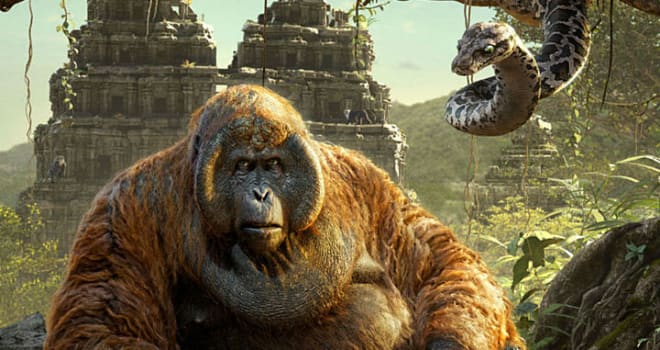 Well, except for the whole talking thing. But at least Baloo (
Well, except for the whole talking thing. But at least Baloo (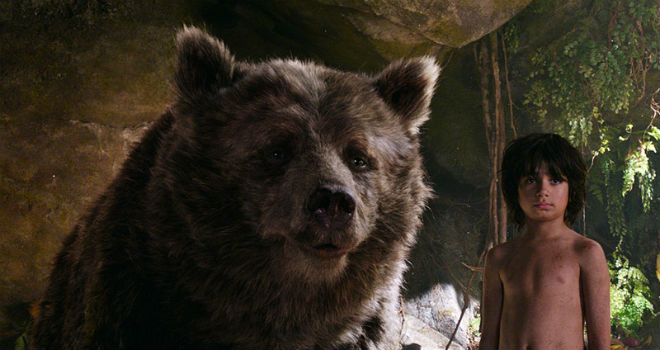 Darker tone aside, Favreau made sure to keep some of the cartoon's comic-relief moments, as is apparent by the casting of Murray and Walken. (The late
Darker tone aside, Favreau made sure to keep some of the cartoon's comic-relief moments, as is apparent by the casting of Murray and Walken. (The late 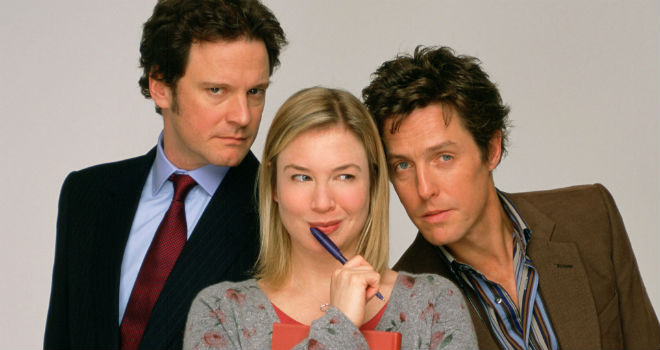 Hard to believe it's been 15 years since "
Hard to believe it's been 15 years since "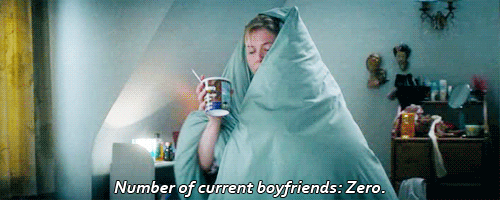 1. Helen Fielding's worldwide bestseller started out as a series of columns in Britain's Independent newspaper that loosely fictionalized the romantic misadventures of Fielding and her thirtysomething pals. Fielding acknowledged that she lifted her storyline from "Pride and Prejudice." "Jane Austen's plots are very good and have been market researched over a number of centuries so I decided simply to steal one of them," Fielding joked. "I thought she wouldn't mind, and anyway, she's dead."
1. Helen Fielding's worldwide bestseller started out as a series of columns in Britain's Independent newspaper that loosely fictionalized the romantic misadventures of Fielding and her thirtysomething pals. Fielding acknowledged that she lifted her storyline from "Pride and Prejudice." "Jane Austen's plots are very good and have been market researched over a number of centuries so I decided simply to steal one of them," Fielding joked. "I thought she wouldn't mind, and anyway, she's dead."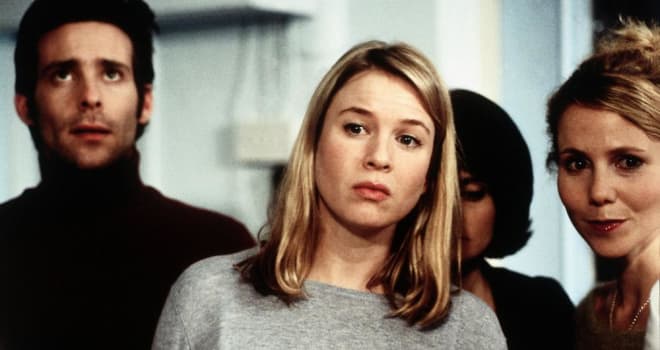 4. Zellweger finally won Maguire over, convincing her that her salty, Texas-bred sense of humor helped her empathize with the earthy Bridget. But when her casting was announced, many Brits were outraged over the idea of an American playing such a quintessentially English character. To learn Bridget's British accent, Zellweger enlisted Barbara Berkery, the dialect coach who had guided
4. Zellweger finally won Maguire over, convincing her that her salty, Texas-bred sense of humor helped her empathize with the earthy Bridget. But when her casting was announced, many Brits were outraged over the idea of an American playing such a quintessentially English character. To learn Bridget's British accent, Zellweger enlisted Barbara Berkery, the dialect coach who had guided 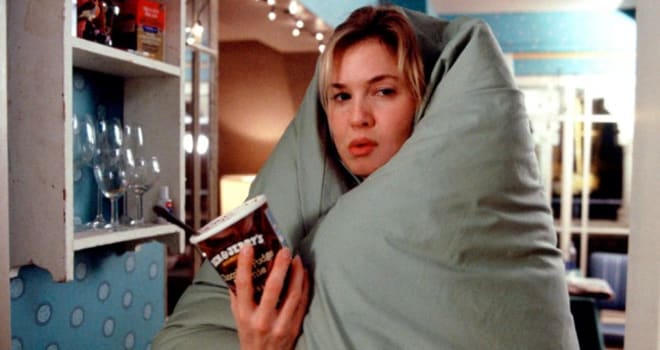 6. The willowy actress also had to pull a "
6. The willowy actress also had to pull a "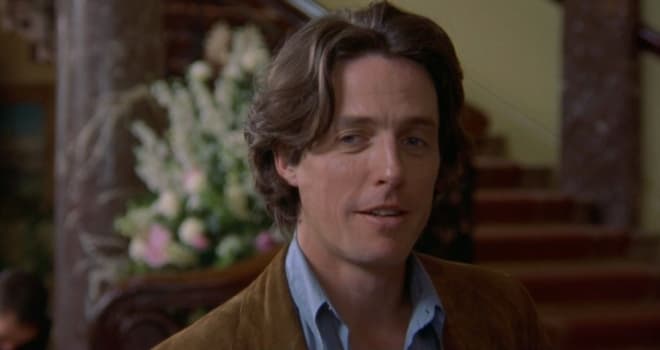 8. At the time he was cast as cad Daniel Cleaver, Hugh Grant was known for stammering nice-guy roles in such Curtis comedies as "Four Weddings" and "
8. At the time he was cast as cad Daniel Cleaver, Hugh Grant was known for stammering nice-guy roles in such Curtis comedies as "Four Weddings" and "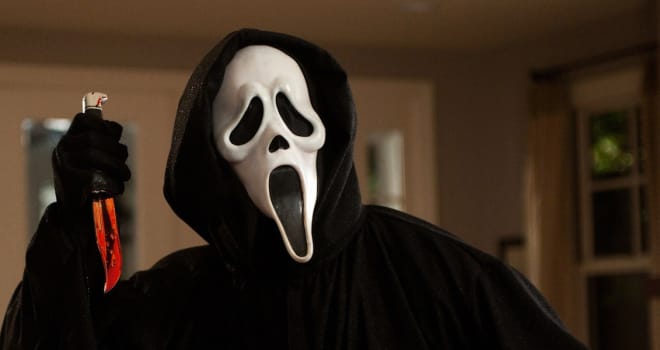 It's been five years since the release of "
It's been five years since the release of "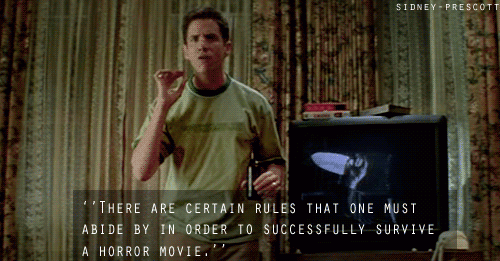 1. "Scream" was originally a screenplay by
1. "Scream" was originally a screenplay by 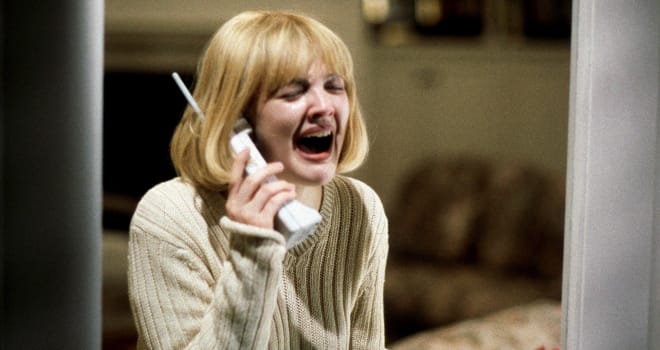 3. Horror master
3. Horror master 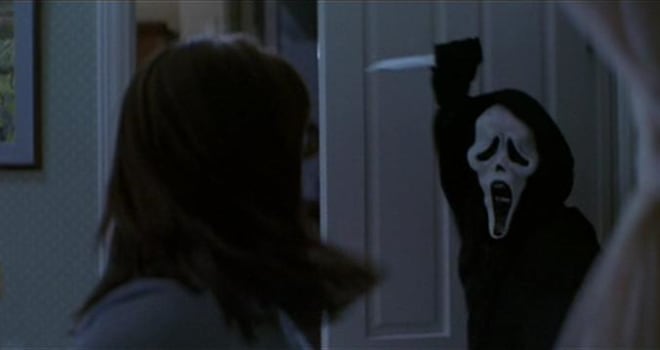 5. The menacing phone voice of Ghostface in all the movies belongs to Roger L. Jackson, who also voices the villainous chimp Mojo Jojo on "
5. The menacing phone voice of Ghostface in all the movies belongs to Roger L. Jackson, who also voices the villainous chimp Mojo Jojo on "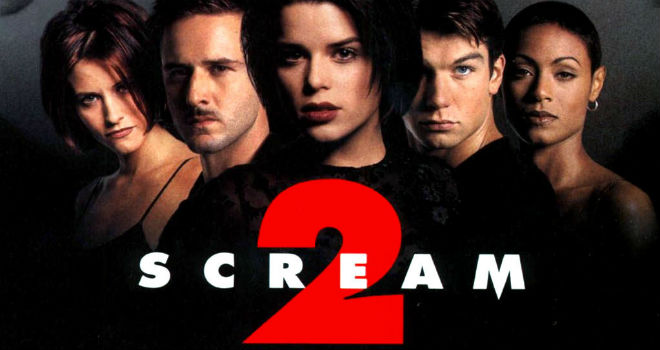 7. With the success of "Scream," the sequel was rushed into production, shooting in July 1997 for a release date that December. The haste led to a leak of the script, forcing Williamson to rewrite on set and change the identity of the killers.
7. With the success of "Scream," the sequel was rushed into production, shooting in July 1997 for a release date that December. The haste led to a leak of the script, forcing Williamson to rewrite on set and change the identity of the killers.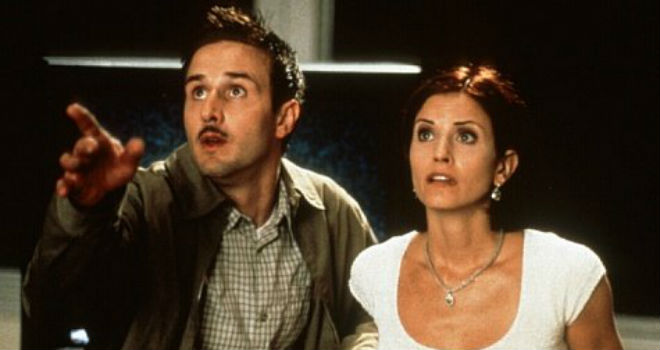 9. Cox and
9. Cox and 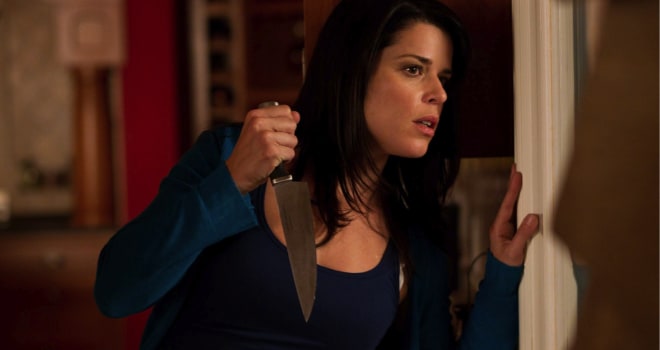 11. Williamson proposed a second trilogy in 2008, but only got as far as "Scream 4." (Blame that film's less-than-expected box office for why the fifth and sixth films never materialized.) Weinstein instead decided to launch the MTV series in June 2015. Craven's death in August 2015 probably puts the kibosh on any more "Scream" movies.
11. Williamson proposed a second trilogy in 2008, but only got as far as "Scream 4." (Blame that film's less-than-expected box office for why the fifth and sixth films never materialized.) Weinstein instead decided to launch the MTV series in June 2015. Craven's death in August 2015 probably puts the kibosh on any more "Scream" movies.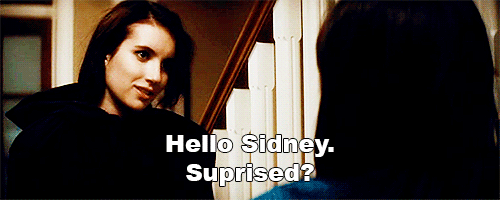 13. The "Scream 4" filmmakers initially offered
13. The "Scream 4" filmmakers initially offered 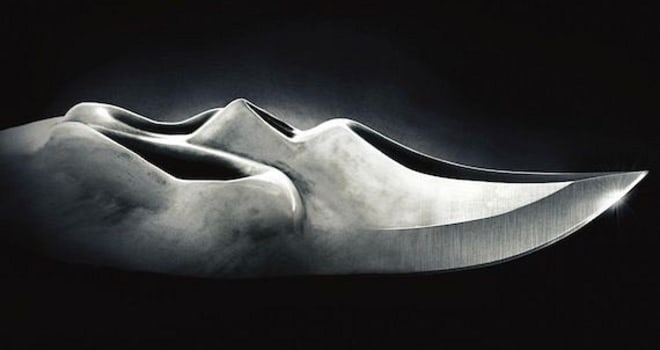 15. The Ghostface mask was designed by retailer Fun World in 1991, inspired (aptly) by Edvard Munch's famous painting "The Scream." It was also inspired by a figure from Gerald Scarfe's artwork from Pink Floyd's "The Wall" album and some ghost figures in an old Betty Boop cartoon.
15. The Ghostface mask was designed by retailer Fun World in 1991, inspired (aptly) by Edvard Munch's famous painting "The Scream." It was also inspired by a figure from Gerald Scarfe's artwork from Pink Floyd's "The Wall" album and some ghost figures in an old Betty Boop cartoon. By now, Disney has mastered the art of turning its beloved animated classics into live-action reboots. But there's more than brand recognition at work here. Disney's marketers -- and director
By now, Disney has mastered the art of turning its beloved animated classics into live-action reboots. But there's more than brand recognition at work here. Disney's marketers -- and director 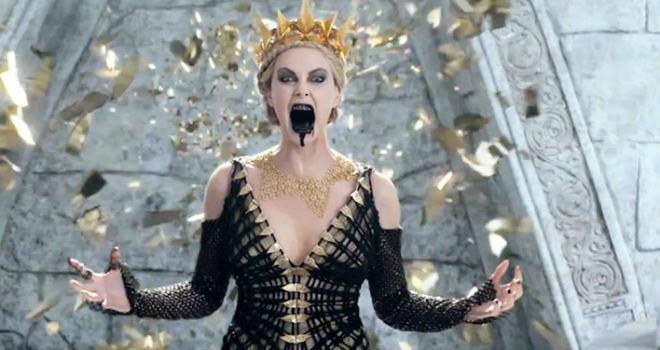 What were they thinking? That's the question you have to ask Universal and the makers of "
What were they thinking? That's the question you have to ask Universal and the makers of "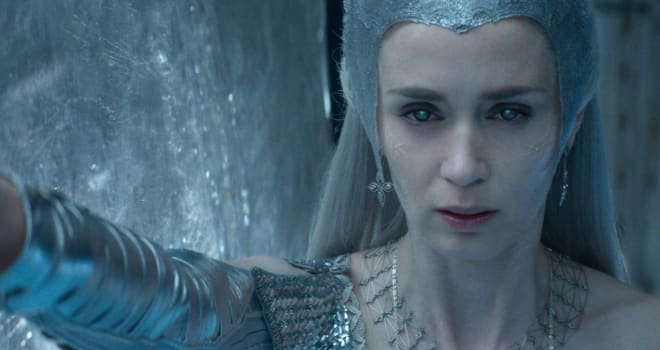 How do you tell a Snow White story without Snow White? Granted, the whole fairytale-backstory thing has worked elsewhere, as in "
How do you tell a Snow White story without Snow White? Granted, the whole fairytale-backstory thing has worked elsewhere, as in "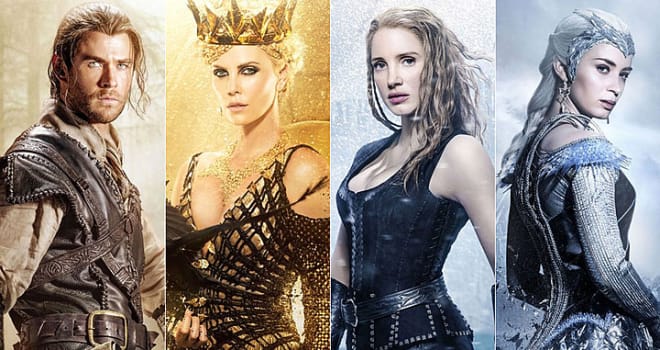 Everyone loves
Everyone loves 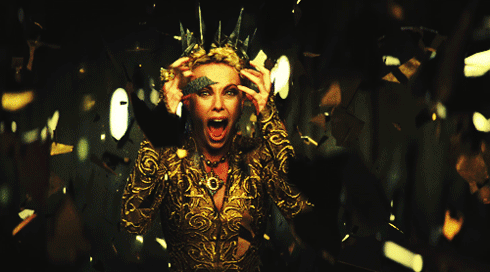 With the notable exception of costume designer Colleen Atwood's extravagant gowns, a lot of "Winter's War" seems slapdash and hastily cobbled together, according to critics. The film amassed a mere 17 percent fresh rating at Rotten Tomatoes (woof!). During production, the film not only lost Stewart and Sanders, but also A-list screenwriters
With the notable exception of costume designer Colleen Atwood's extravagant gowns, a lot of "Winter's War" seems slapdash and hastily cobbled together, according to critics. The film amassed a mere 17 percent fresh rating at Rotten Tomatoes (woof!). During production, the film not only lost Stewart and Sanders, but also A-list screenwriters 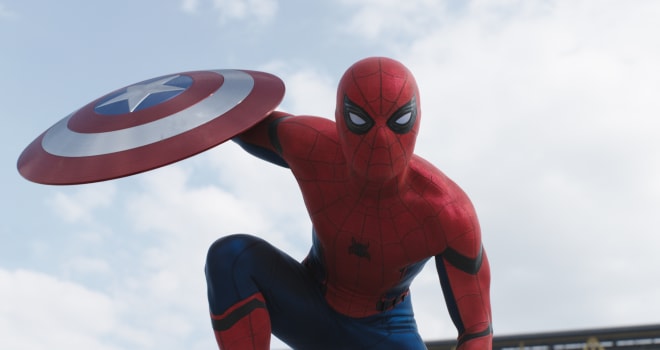 Stateside, however, it's likely to limp along for another week until it (and everything else) gets clobbered by another "War" movie: Marvel's "
Stateside, however, it's likely to limp along for another week until it (and everything else) gets clobbered by another "War" movie: Marvel's " Twenty years ago this week, four teenage girls dabbled in magic powers and unleashed forces more powerful than they could have imagined. We're not just talking about the plot of "
Twenty years ago this week, four teenage girls dabbled in magic powers and unleashed forces more powerful than they could have imagined. We're not just talking about the plot of " 1. Star
1. Star  3.
3. 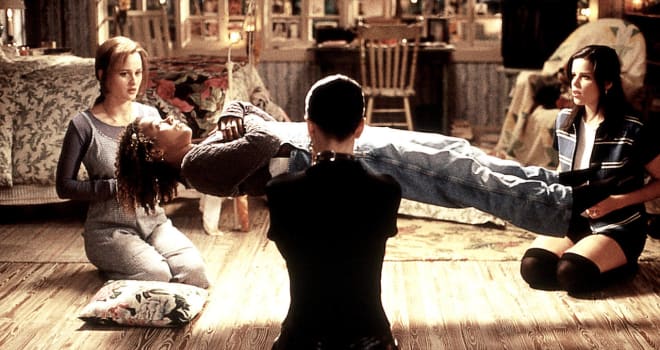 5.
5.  7. The knife fight between Tunney and Balk won the MTV Movie Award for Best Fight, beating such experienced big-screen fighters as Jackie Chan (in "Police Story 4") and Jim Brown (in "Mars Attacks").
7. The knife fight between Tunney and Balk won the MTV Movie Award for Best Fight, beating such experienced big-screen fighters as Jackie Chan (in "Police Story 4") and Jim Brown (in "Mars Attacks"). 10. A year ago,
10. A year ago,  Many box office analysts predicted that "
Many box office analysts predicted that " This column has
This column has  "Keanu," the R-rated comedy from sketch duo Key and Peele, did get positive-ish reviews (75 percent at Rotten Tomatoes) and just-okay word-of-mouth (a B CinemaScore), but it had to compete against the still-strong "
"Keanu," the R-rated comedy from sketch duo Key and Peele, did get positive-ish reviews (75 percent at Rotten Tomatoes) and just-okay word-of-mouth (a B CinemaScore), but it had to compete against the still-strong " In many ways, the box office is in a holding pattern until Disney and Marvel's "
In many ways, the box office is in a holding pattern until Disney and Marvel's "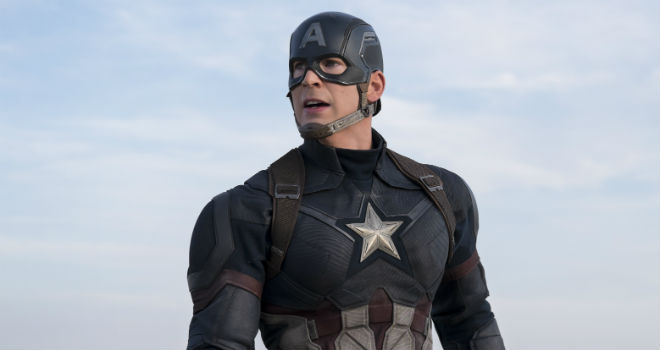 Ho-hum, another first weekend of the
Ho-hum, another first weekend of the 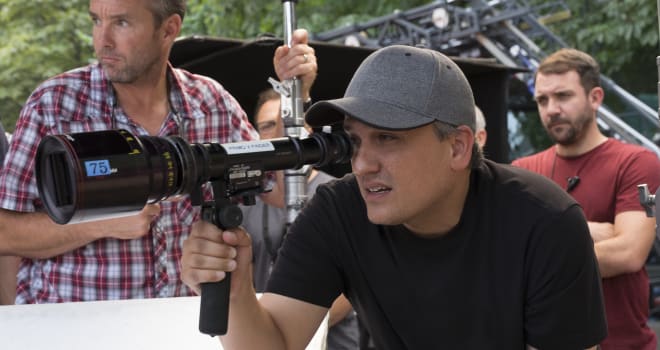 Or, as Hollis put it on Sunday, "You've gotta make a really great movie." The MCU movies have been fairly consistent in quality, a status Hollis credits largely to Feige, though Feige's willingness to hire inventive filmmakers (such as
Or, as Hollis put it on Sunday, "You've gotta make a really great movie." The MCU movies have been fairly consistent in quality, a status Hollis credits largely to Feige, though Feige's willingness to hire inventive filmmakers (such as 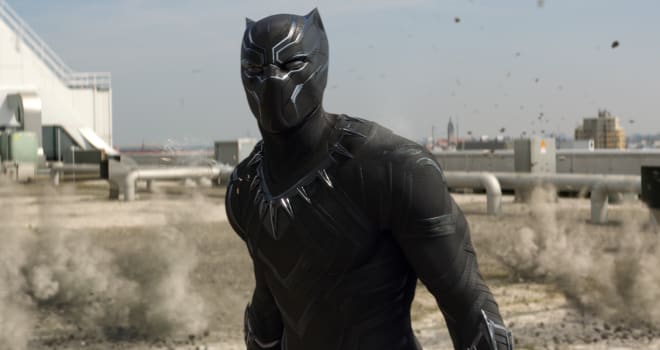 Certainly, Marvel fans come to these films to see familiar faces, but they're also excited about new ones. Said Hollis, "Yes, you have to have movies that feature familiar characters, but you also have to keep this universe fresh by introducing new characters." He was particularly pleased with the eagerly-anticipated introduction in "Civil War" of
Certainly, Marvel fans come to these films to see familiar faces, but they're also excited about new ones. Said Hollis, "Yes, you have to have movies that feature familiar characters, but you also have to keep this universe fresh by introducing new characters." He was particularly pleased with the eagerly-anticipated introduction in "Civil War" of 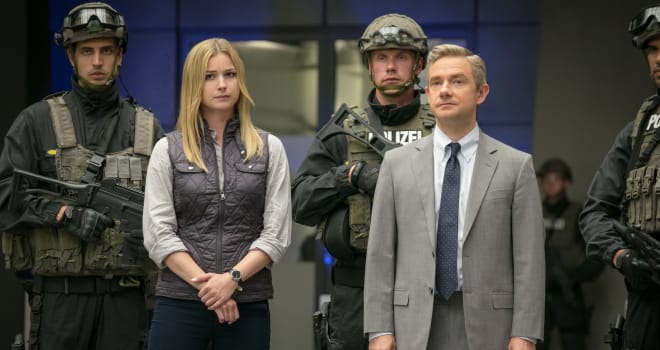 Hollis said he was aware that critics -- and many fans -- may be getting tired of a multiplex blockbuster environment defined almost entirely by spandex-clad comic-book heroes and villains. "We're inoculated against superhero fatigue," he said, "by making movies that individually have a genre that's outside the superhero movie." For instance, he noted, the last "Captain America" installment ("The Winter Solder") was more of "an espionage film." "
Hollis said he was aware that critics -- and many fans -- may be getting tired of a multiplex blockbuster environment defined almost entirely by spandex-clad comic-book heroes and villains. "We're inoculated against superhero fatigue," he said, "by making movies that individually have a genre that's outside the superhero movie." For instance, he noted, the last "Captain America" installment ("The Winter Solder") was more of "an espionage film." "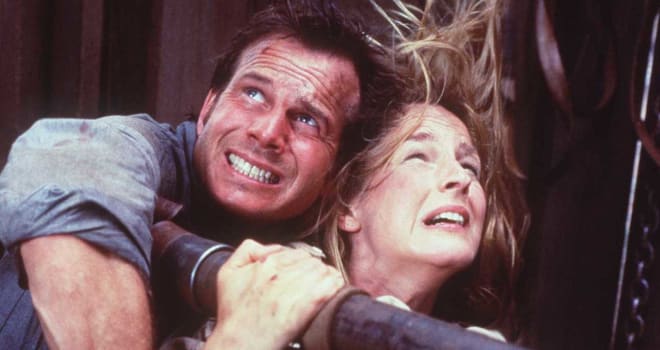 Released 20 years ago this week (on May 10, 1996), "
Released 20 years ago this week (on May 10, 1996), "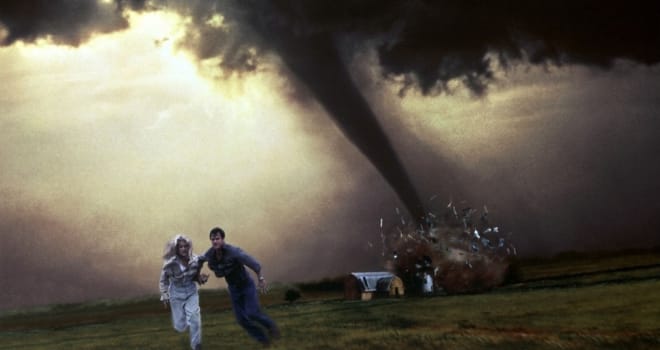 1. The "Twister" screenplay is credited to "
1. The "Twister" screenplay is credited to "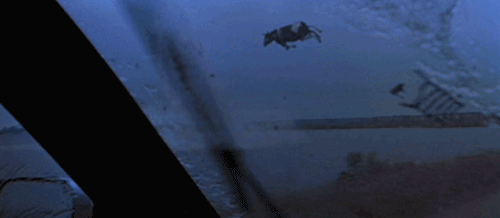 3.
3. 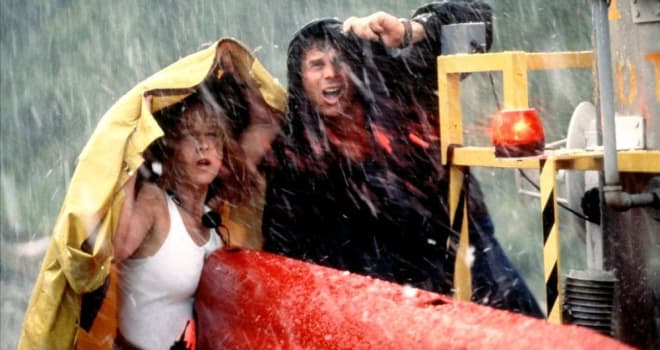 5. Tensions flared between de Bont and cinematographer
5. Tensions flared between de Bont and cinematographer 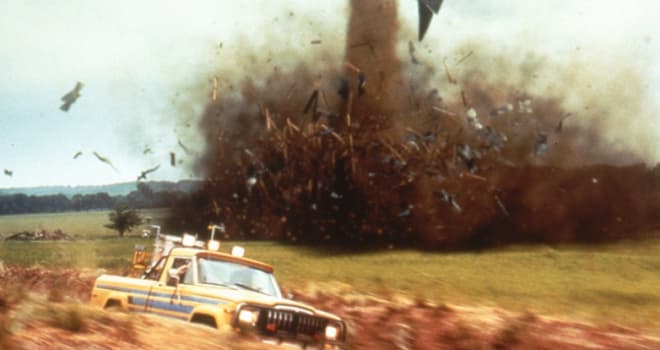 7. Much of the film was shot in Wakita, Oklahoma, where producers purchased and then leveled eight blocks of existing houses, as well as flattening 30 homes built for the shoot. According to the
7. Much of the film was shot in Wakita, Oklahoma, where producers purchased and then leveled eight blocks of existing houses, as well as flattening 30 homes built for the shoot. According to the 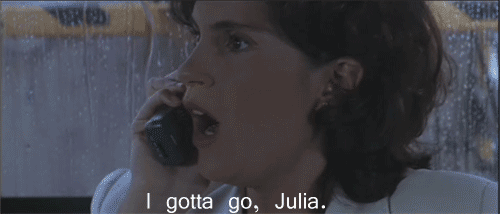 9. "Twister" was nominated for two Oscars, for Best Visual Effects and Best Sound. It was also nominated for two Razzies, including Worst Supporting Actress (for Gertz, pictured). The Crichtons won the Razzie for Worst Written Film Grossing Over $100 Million.
9. "Twister" was nominated for two Oscars, for Best Visual Effects and Best Sound. It was also nominated for two Razzies, including Worst Supporting Actress (for Gertz, pictured). The Crichtons won the Razzie for Worst Written Film Grossing Over $100 Million.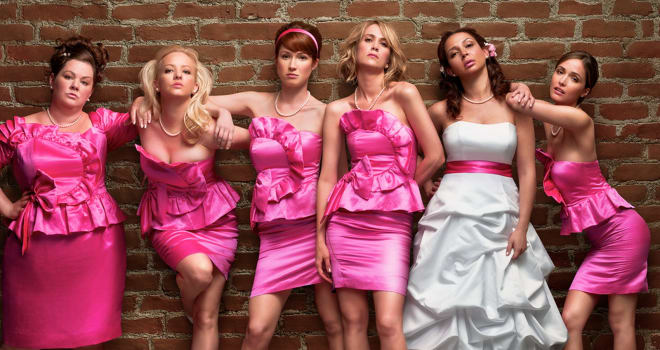 You can pinpoint the moment almost precisely when "
You can pinpoint the moment almost precisely when "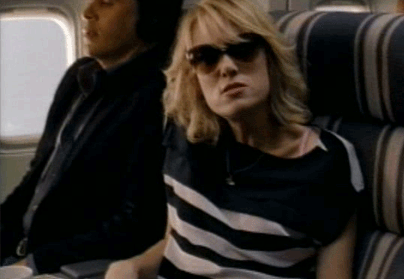 1. "Bridesmaids" came about because of Wiig's cameo as a hostile TV producer in Apatow's "
1. "Bridesmaids" came about because of Wiig's cameo as a hostile TV producer in Apatow's "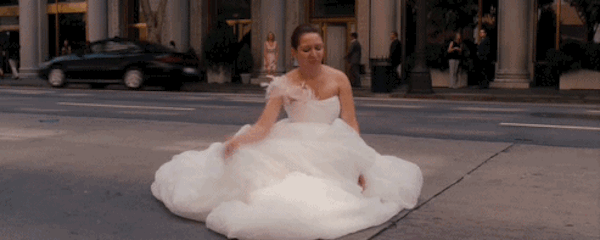 4. Future "
4. Future "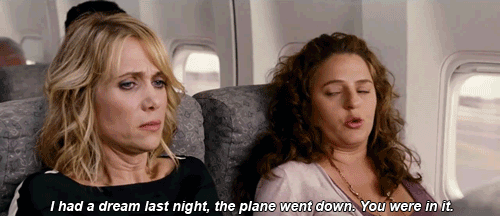 6. Early drafts of the script featured a bachelorette party sequence in Las Vegas, but just three weeks before shooting, producer Apatow nixed the scene, complaining that there had been too many recent movies (notably, "
6. Early drafts of the script featured a bachelorette party sequence in Las Vegas, but just three weeks before shooting, producer Apatow nixed the scene, complaining that there had been too many recent movies (notably, "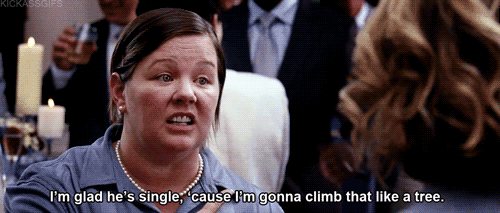 9. At the 2012 Oscars, "Bridesmaids" received two nominations, for Best Original Screenplay and for Best Supporting Actress, for McCarthy.
9. At the 2012 Oscars, "Bridesmaids" received two nominations, for Best Original Screenplay and for Best Supporting Actress, for McCarthy.